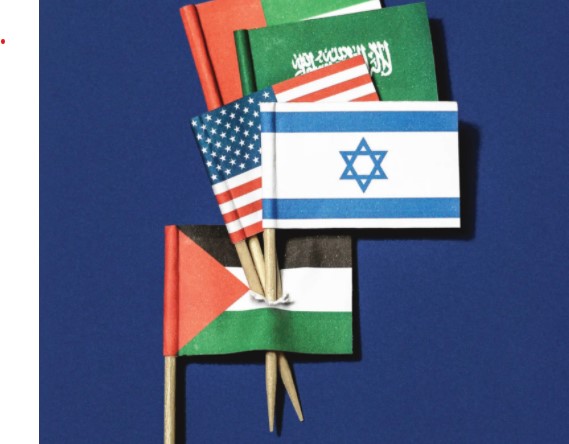Energy News Beat Publishers Note: We have been talking about OPEC, and OPEC +, in their inability to enforce production quotas from their members. Some of the key talking points have been surrounding Iran, Iraq, Libya, China, and Venezuela to name a few. With the same negotiator from the Pre-Trump administration running the new talks, we have asked the question will this cost more than 1.6 Billion in cash to get the deal signed? When the last nuclear deal was signed, they continued to produce weapons’ grade uranium. That is one of the reasons given by the Trump administration for imposing sanctions due to the non-compliance of the original treaty.
We are rooting for peace between all countries and DO NOT WANT any conflicts starting over the nuclear weapons capabilities of a country.
The bottom line: OPEC and OPEC + do not know how much the members are producing, and supplying, to the insatiable demand from China. What Israel and the rest of the world do in the next few weeks will determine a lot, prior to the new administrations actions.
Energy News Beat Recommended Reading, and subscription for all things Geopolitical Futures.
Brief: Countdown to an Iranian Bomb
by Geopolitical Futures – February 1, 2021 –
Background: The Israeli-Sunni Arab coalition against Iran that started taking shape last year has
put even more pressure on the Islamic republic. But the coalition needs U.S. backing if it’s going to
reach its full potential, and the new administration in Washington is reviewing the Iran nuclear deal,
which the U.S. unilaterally exited in 2018.
What Happened: There’s growing urgency behind the Biden administration’s effort to restore the
deal after Secretary of State Antony Blinken told NBC News that it could be “a matter of weeks”
before the regime has enough fissile material to produce a nuclear weapon. Washington has said it
wants to return to the nuclear deal but that Tehran must first meet certain conditions. That appears
unlikely.
In other news, the head of Israel’s Mossad spy agency, Yossi Cohen, is scheduled to visit
Washington this month to discuss the situation with U.S. President Joe Biden, National Security
Adviser Jake Sullivan and Biden’s nominee to head the CIA, William Burns. Last week, Israel’s chief
of staff met with U.S. Central Command leaders and warned that Israel was preparing operational
plans for dealing with Iran’s nuclear enrichment program. Along those lines, the Israeli Defense
Ministry announced a successful test of its upgraded Iron Dome air defense system. Iran, for its
part, debuted a new air defense force and operations center at the Khatam al-Anbia air defense
base in northwestern Iran. Tehran also reportedly delivered 56 short- and medium-range surface-tosurface missiles to Iraqi Hezbollah forces stationed in Deir el-Zour, Syria.
Bottom Line: Iran’s acquisition of a nuclear weapon would mark a red line for Israel. Attempting to
stop Iran, however, would entail an extremely high-risk operation – even if the U.S. were on board.
Whatever it does, it needs the U.S. to be on the same page.

